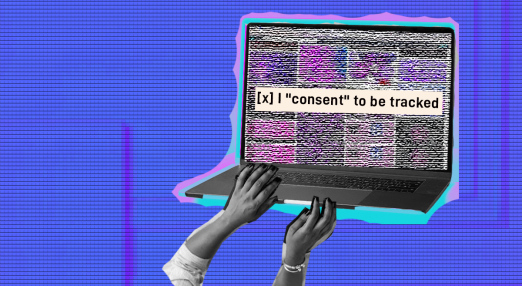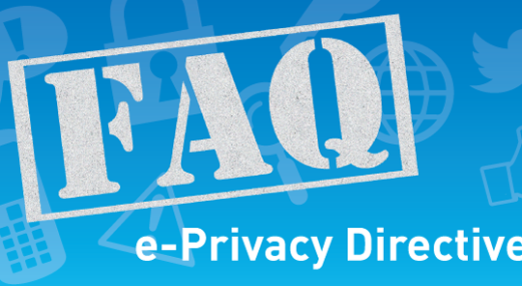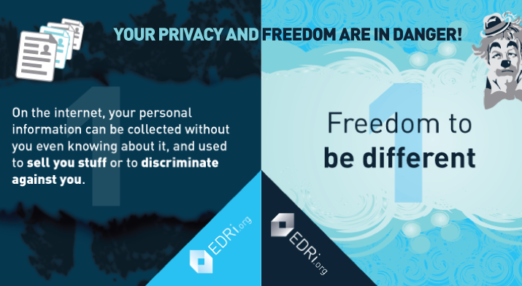cookies
Filter by...
-

Get your extra reading on “cookie consent” and AdTech done
On 22 February, the Belgian Data Protection Authority (DPA) made a decision regarding complaints about the Internet Advertising Bureau Europe (IAB Europe) "consent framework". This is a commonly used cookie pop-up asking for "consent" to be tracked.
Read more
-

Belgian authority finds IAB Europe’s consent pop-ups incompatible with the GDPR
Following a number of complaints filed in 2018 and 2019, including by EDRi-members Panoptykon and Bits of Freedom, and coordinated by the Irish Council for Civil Liberties, the Belgian Data Protection Authority has found that the consent system developed and managed by the adtech industry body IAB Europe, and used by many websites in the EU, is illegal under the GDPR.
Read more
-

Hide and Seek: Polish DPA agrees that people should be able to access their advertising profiles, but there’s no way to do so
Following EDRi member Panoptykon’s General Data Protection Regulation (GDPR) complaint against one of the biggest Polish news website, Interia.pl - the Polish Data Protection Authority has confirmed that online publishers should give users access to their advertising profiles generated for the purposes of delivering behavioural ads.
Read more
-

EDPS sanctions the European Parliament for illegal EU-US data transfers – among other violations
In January 2021, noyb filed a complaint against the European Parliament on behalf of six Members of the European Parliament over an internal corona testing website. The issues raised were deceptive cookie banners, vague and unclear data protection notices, and the illegal transfer of data to the US.
Read more
-

Data retention, location data, cookie banners: the ePrivacy Regulation is coming
Besides cookies, the purpose of the ePrivacy Directive is to regulate a much wider area: it contains specific data protection provisions for electronic communications data, in particular content data, traffic metadata, and location data that accrues when using the internet or talking on the phone. Importantly, it also regulates if and to what extent public authorities can access this data: Article 15 of the Directive provides that restrictions of the data protection provisions need to constitute "a necessary, appropriate and proportionate measure within a democratic society to safeguard national security".
Read more
-

noyb aims to end “cookie banner terror” and issues more than 500 GDPR complaint
EDRi's member noyb.eu sent over 500 draft complaints to companies who use unlawful cookie banners - making it the largest wave of complaints since the GDPR came into force. "Some companies are clearly trying everything to make privacy a hassle for users, when they have a duty to make it as simple as possible."
Read more
-

Google’s FLoC Is a Terrible Idea
Google is leading the charge to replace third-party cookies with a new suite of technologies to target ads on the Web. And some of its proposals show that it hasn’t learned the right lessons from the ongoing backlash to the surveillance business model. In this post, EDRi's member Electronic Frontier Foundation (EFF) will focus on one of those proposals, Federated Learning of Cohorts (FLoC), which is perhaps the most ambitious—and potentially the most harmful.
Read more
-

Say “no” to cookies – yet see your privacy crumble?
Cookie banners of large French websites turn a clear “no” into “fake consent”. EDRi member noyb has filed three General Data Protection Regulation (GDPR) complaints with the French Data Protection Regulator (CNIL).
Read more
-

ePrivacy : Foire Aux Questions
Original version here (English) Qu’est-ce que le Réglement vie privée et communications électroniques ? Le Réglement vie privée et communications électroniques ou e-Privacy est un Réglement qui couvre des problèmes spécifiques de la vie privée et de la protection des données dans le domaine des communications. Elle a été adoptée en 2002 et révisée en […]
Read more
-

e-Privacy Directive: Frequently Asked Questions
(This article is available as well in German and French) What is the e-Privacy Directive? The e-Privacy Directive (ePD) is a Directive covering specific privacy and data protection issues in the electronic communications sector. It was adopted in 2002 and revised in 2009. The official text of the current version can be found here.
Read more
-

Die ePrivacy-Reform: Häufig gestellte Fragen
Original version here (English) Was ist die ePrivacy-Reform? Die Datenschutzrichtlinie für elektronische Kommunikation (auch: ePrivacy-Richtlinie) ist eine Richtlinie, die sich mit bestimmten, die Privatsphäre und den Datenschutz betreffenden Themen im Bereich der elektronischen Kommunikation auseinandersetzt. Sie wurde 2002 verabschiedet und im Jahre 2009 überarbeitet. Der offizielle Wortlaut der aktuellen Version kann hier abgerufen werden. Sie […]
Read more
-

#1 Freedom to be different: How to defend yourself against tracking
Lee este artículo en español This is the first blogpost of our series dedicated to privacy, security and freedoms. In the next weeks, we will explain how your freedoms are under threat, and what you can do to fight back.
Read more
